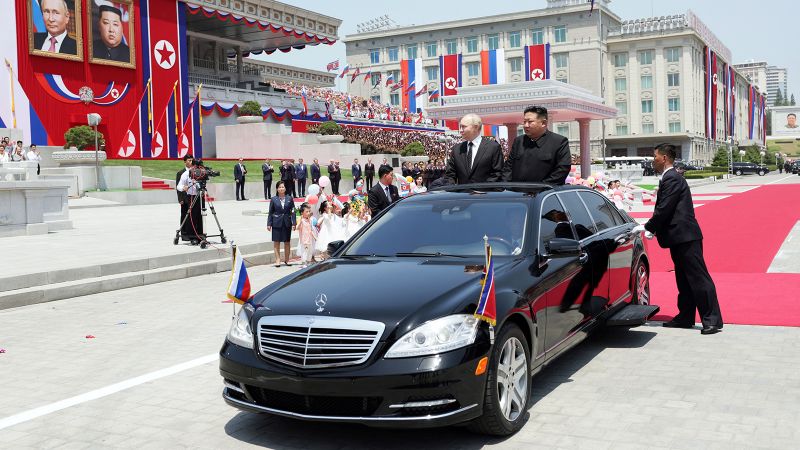In reply to Hungary Bill (Forum Supporter) :
"Honestly, in russia it's a pretty well paved path dating back centuries to when vodka was (and still is, I believe) owned by the state/oligarchs and made to be sold incredibly cheap to the consumer (as a drunk population is a content population, and therefore easier to control)."
This has been my take on the recent efforts in this country to legalize marijuana, that and the big tax revenues the government is getting from it.
Was looking back on some history recently, and reminded that current events have not-so current root causes. From the NATO wikipedia page. I'm sure it's been discussed here before, but it does provoke thought.
"There is no mention of NATO expansion into any other country in the September–October 1990 agreements on German reunification.[24] Whether or not representatives from NATO member states informally committed to not enlarge NATO into other parts of Eastern Europe during these and contemporary negotiations with Soviet counterparts has long been a matter of dispute among historians and international relations scholars.[25][26]
With several countries threatening to withdraw from the Warsaw Pact, the Soviet military relinquished control of the organization in March 1991, allowing it to be formally dissolved that July.[27][28] The so-called "parade of sovereignties" declared by republics in the Baltic and Caucasus regions of the Soviet Union and their War of Laws with the government in Moscow further fractured its cohesion. Following the failure of the New Union Treaty, the leadership of the remaining constituent republics of the Soviet Union, starting with Ukraine in August 1991, declared their independence and initiated the dissolution of the Soviet Union, which was completed in December of that year. Russia, led by President Boris Yeltsin, became the most prominent of the independent states.[29] The Westernization trend of many former Soviet allied states led them to privatize their economies and formalize their relationships with NATO countries, the first step for many towards European integration and possible NATO membership.[30][31]
In December 1997, Russian President Boris Yeltsin described NATO expansion as a threat to Russia.
By August 1993, Polish President Lech Wałęsa was actively campaigning for his country to join NATO, at which time Yeltsin reportedly told him that Russia did not perceive its membership in NATO as a threat to his country. Yeltsin however retracted this informal declaration the following month,[32] writing that expansion "would violate the spirit of the treaty on the final settlement" which "precludes the option of expanding the NATO zone into the East."[33][34] During one of James Baker's 1990 talks with Soviet leader Mikhail Gorbachev, Baker did suggest that the German reunification negotiations could have resulted in an agreement whereby "there would be no extension of NATO's jurisdiction for forces of NATO one inch to the east,"[35] and historians like Mark Kramer have interpreted it as applying, at least in the Soviets' understanding, to all of Eastern Europe[36][37][26][dubious – discuss], while concluding that "at no point in the discussion did either Baker or Gorbachev bring up the question of the possible extension of NATO membership to other Warsaw Pact countries beyond Germany."[38] Gorbachev later stated that NATO expansion was "not discussed at all" in 1990, but, like Yeltsin, described the expansion of NATO past East Germany as "a violation of the spirit of the statements and assurances made to us in 1990."[24][34][39]
This view, that informal assurances were given by diplomats from NATO members to the Soviet Union in 1990, is common in countries like Russia,[26][21] and, according to political scientist Marc Trachtenberg, available evidence suggests that allegations made since then by Russian leadership about the existence of such assurances "were by no means baseless."[25][40] Yeltsin was succeeded in 2000 by Vladimir Putin, who further promoted the idea that guarantees about enlargement were made in 1990, including during a 2007 speech in Munich.[41][39] This impression was later used by him as part of his justification for Russia's 2014 actions in Ukraine and the Russian invasion of Ukraine in 2022"






































